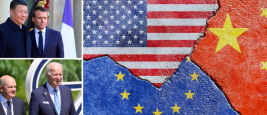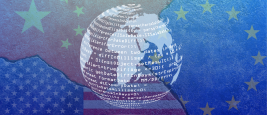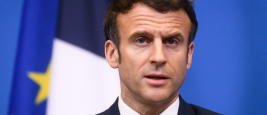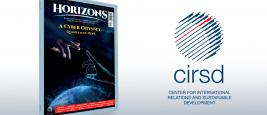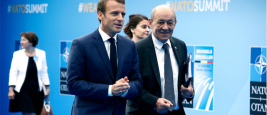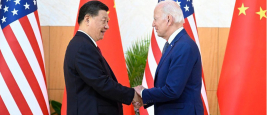
Alice PANNIER
Former Research Fellow and Head of Ifri's Geopolitics of Technology Program
Research Interests:
- Geopolitical dimension of new technologies
- European tech sovereignty & strategies (e.g. quantum, cloud, AI, semiconductors)
- Industrial, research and innovation policies
- France and EU's technology partnerships
Alice Pannier headed the Geopolitics of Technology program from its launch in October 2020 to February 2024, after being an Associate Research Fellow since 2019. Her research focused on the geopolitical dimension of new technology, European technology policies, and transatlantic relations. She has also worked for a long time on European security and the foreign and defense policies of European countries, especially France and the United Kingdom.
Prior to joining Ifri, she was Assistant Professor in International Relations and European Studies at the Paul H. Nitze School of Advanced International Studies (SAIS) at Johns Hopkins University in Washington (2017-2020). Previously, she was a postdoctoral researcher at the Institute of strategic research (IRSEM) at the French ministry of armed forces. She is a graduate of King’s College London and Panthéon-Sorbonne University and holds a doctorate in political science from IEP Paris, co-supervised with King’s College.
While matters related to research security and international partnerships in critical domains are certainly not new, they have become increasingly central to governments, research institutions and industry since the turn of the 2020s.
As French President Emmanuel Macron (accompanied by Ursula von der Leyen) is on a state visit to China, some twenty Ifri researchers decipher the stakes of the U.S./China/Europe strategic triangle.
Digital technology is an element of power in the international system as well as an area for competition among countries. The study provides a qualitative comparison of the technology policies of nine of the digital middle powers: Brazil, India, Israel, Japan, Kenya, Nigeria, Russia,...
Open source is at the heart of the Internet infrastructure, of the software used by individuals or governments, and of the innovation processes of tech companies. Faced with threats to the security and sustainability of the open source model, governments are getting a hold of the topic, which...
France has historically paid significant attention to strategic technologies and industries, whether they were strictly defence- and nuclear deterrence related, or considered as vectors of national independence and security,...
Computing power plays a key role in enabling data analytics and machine learning, in cybersecurity, for scientific research, and in military domains like nuclear warhead design and detonation simulation.
One month before the French presidential election, this briefing assesses the actions undertaken during Macron's term as well as the presidential candidates' proposals concerning France's digital sovereignty.
France’s policy vis-à-vis the North Atlantic Treaty Organization (NATO) has always been ambivalent. On paper, France’s strategic culture fits well within NATO’s nature and agenda. Yet, in practice, French membership of NATO has always been uneasy. Several intra-alliance developments...
Computing power plays a key role in enabling machine learning, for scientific research, and in the military domain. Therefore, the race for computing power has become a key element of the US-China technological competition, and it is also a strategic priority for Europe.
Non-European cloud service providers host the vast majority of European data, which is viewed as an economic as well as a political problem. Gaia-X, European governments and the European Union aim to bolster the European cloud market while responding to data privacy and cybersecurity concerns....
Barriers being put up by the US, China and the EU could hinder scientific progress at a time when it is most urgently needed, according to OECD’s latest report on the global R&D outlook.
The US struggles to retain its supremacy, China catches up and overtakes the leader in many areas while the EU is falling behind.
As Emmanuel Macron prepares to welcome Rishi Sunak to Paris, hopes are high that the first UK-France summit since 2018 will turn the page on years of strained post-Brexit relations.
Alice Pannier is leading a new programme looking at the relationship between technology and geopolitical alliances. Recent events have proven this to be more important than ever.
Technologies from big data to quantum computing, artificial intelligence and next-generation drones are fueling power struggles between nations and large industrial companies. Alice Pannier, head of the...
Watch the video replay of the conference organized by Ifri's Geopolitics of Technology program on November 18, 2021.
Audrey Tang, Digital Minister of Taiwan, discussed the impact of technological changes such as 5G, contact tracing and Internet governance in an online debate.





